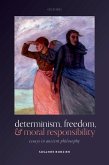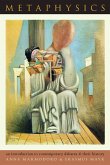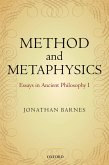Ideas about relativity underlie much ancient Greek philosophy, from Protagorean relativism, to Plato's theory of Forms, Aristotle's category scheme, and relational logic. In Ancient Relativity Matthew Duncombe explores how ancient philosophers, particularly Plato, Aristotle, the Stoics, and Sextus Empiricus, understood the phenomenon and how their theories of relativity affected, and were affected by, their broader philosophical outlooks. He argues that ancient philosophers shared a close-knit family of views referred to as 'constitutive relativity', whereby a relative is not simply linked by a relation but is constituted by it. Plato exploits this view in some key arguments concerning the Forms and the partition of the soul. Aristotle adopts the constitutive view in his discussions of relativity in Categories 7 and the Topics and retains it in Metaphysics Delta 15. Duncombe goes on to examine the role relativity plays in Stoic philosophy, especially Stoic physics and metaphysics, and the way Sextus Empiricus thinks about relativity, which does not appeal to the nature of relatives but rather to how we conceive of things as correlative.
Dieser Download kann aus rechtlichen Gründen nur mit Rechnungsadresse in A, B, BG, CY, CZ, D, DK, EW, E, FIN, F, GR, HR, H, IRL, I, LT, L, LR, M, NL, PL, P, R, S, SLO, SK ausgeliefert werden.









